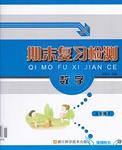题目内容
7.Dear Susan,I was excited when I received your letter and the English stamps.
Thank you for send me the English stamps.What beautiful these stamps are!I really liked them.I like stampcollecting very much.When I was in the age of 8,I started to collect stamps.So far,I collected nearly 1,000 Chinese stamps and more than 400 foreign stamps.I find stampcollecting interest and beneficial.Not only can I enjoy the beautiful designs of stamps,but also I can gain many knowledge from it.I am glad to know you also like collecting the stamps.I hope we shall often exchange the stamps of our two countries.I hope we'll be friend for ever.
Yours,
Li Hua.
分析 这是一封和朋友交流集邮爱好的信.
我很喜欢你给我的邮票,我从八岁就开始集邮了,到现在已经有一千多张了,其中有四百多张外国邮票.集邮不仅可以让我欣赏到精美的设计,而且获得了许多知识.我们可以交换邮票,希望一辈子是朋友.
解答 Dear Susan,
I was excited when I received your letter and the English stamps.
Thank you for send me the English stamps.What beautiful these stamps are!I really liked them.I like stampcollecting very much.When I was in the age of 8,I started to collect stamps.So far,I∧collected nearly 1,000 Chinese stamps and more than 400 foreign stamps.I find stampcollecting interest and beneficial.Not only can I enjoy the beautiful designs of stamps,but also I can gain many knowledge from it.I am glad to know you also like collecting the stamps.I hope we shall often exchange the stamps of our two countries.I hope we'll be friend for ever.
Yours,
Li Hua解析:
1.send-sending.考查非谓语动词.介词for 后用动名词做宾语,所以用sending.
2.what-how.考查感叹句.修饰形容词beautiful 用how,表示"这些邮票是多么漂亮".what修饰名词.
3.liked-like.考查谓语动词的时态.根据上文可知"我喜欢这些邮票",指的是现在的情况,所以谓语动词用一般现在时态.
4.in-at.考查介词.固定短语at the age of 表示"在某人多大的时候".
5.collect ed前加have.考查谓语动词的时态.根据时间状语So far表示"到目前为止"可知谓语动词用现在完成时态,所以谓语动词用have collected.
6.interest-interesting.考查单词辨析.做I find stampcollecting 的宾补,修饰stampcollecting应该用interesting.表示"我发现集邮很有趣".
7.many-much.考查不可数名词的修饰词.修饰不可数名词knowledge用much.
8.it-them.考查代词.代指上半句的stamps用them.
9.去掉the.考查冠词.可数名词复数stamps在这里表示泛指,所以去掉the.
10.friend-friends.考查名词复数.本句表示"希望两人成为朋友",所以不是只有一个人,因此用复数friends.
点评 考查短文改错.
现在完成时的用法
(1)与just连用,表示刚刚完成的动作或状态(just放在have∕has与P.P.之间).
I have just had lunch.
He has just finished his homework.
(2)表示动作发生在过去,持续到现在,有可能延续到将来,常与since"自从…"(后面跟一点时间)for(后面跟一段时间)连用.
I have learned English since 2000.
He has lived there for 10 years.
(3)表示过去的动作对现在的影响.
He has lost his key.
(4)与最高级连用,表示"到目前为止最…"
You're the cleverest girl that I've seen.
(5)与It∕This the first time that…连用,表示"第一次…"
It∕This is the first time that he has learned English.

 期末复习检测系列答案
期末复习检测系列答案 超能学典单元期中期末专题冲刺100分系列答案
超能学典单元期中期末专题冲刺100分系列答案 黄冈360度定制密卷系列答案
黄冈360度定制密卷系列答案 阳光考场单元测试卷系列答案
阳光考场单元测试卷系列答案